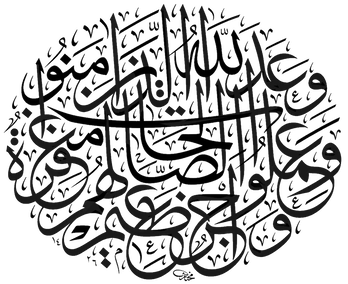Question:
Answer:
عَنْ أَبِي هُرَيْرَةَ قَالَ: قَالَ رَسُولُ اللَّهِ صَلَّى اللَّهُ عَلَيْهِ وَسَلَّمَ: «إِذَا وَجَدَ أَحَدُكُمْ فِي بَطْنِهِ شَيْئًا فَأَشْكَلَ عَلَيْهِ أَخَرَجَ مِنْهُ شَيْءٌ أَمْ لَا فَلَا يَخْرُجَنَّ مِنَ الْمَسْجِدِ حَتَّى يَسْمَعَ صَوْتًا أَوْ يَجِدَ رِيحًا». رَوَاهُ مُسلم
Abu Huraira reported that Allah’s messenger (ﷺ) said, “If any of you sensed something in the stomach which raises some doubt whether or not anything has been issued from him, he should not leave the mosque unless he hears a sound or perceives a smell.”
The scholars explain that hearing a sound and perceiving a smell means being certain of passing wind. In other words, mere doubt does not affect the wudu. It is only when one is certain that he passed wind that his wudu will be regarded as being broken.
Based on the above, the ‘gassy feeling’ inside your stomach will not affect your wudu, and any doubts should be ignored. Yes, it may be difficult at first, but after a few times your mind will rest easy.
Regarding whether or not you qualify as a ma’dhoor, the detail is as follows:
For you to be established as a ma’dhoor (excused person), the following must occur: Uncontrollable passing of wind must take place from the entry time of any fardh salah till the expiry time thereof in such a way that you are unable to find the minimum amount of time required to make wudu and perform the fardh salah without the occurrence of the uncontrollable passing of wind. Even if you experience this once only, you will qualify as a ma’dhoor and the specific rulings pertaining to ma’dhoors will apply to you.
After it is established that you are a ma’dhoor, the uncontrollable passing of wind must continue for you to remain a ma’dhoor. The minimum amount of continuation is that the uncontrollable passing of wind should occur at least once in every salah time. Hence, if even one salah time passes wherein uncontrollable passing of wind does not eventuate at all then you will no longer be considered a ma’dhoor and the normal rulings will apply to you. Based on this, it does not seem like you fulfill the criteria of being a ma’dhoor.
If you establish that you qualify as a ma’dhoor then write back to us so we can inform you of the special rulings that apply to a ma’dhoor.
Moreover, it is important to note that Allah has made Shaytan the greatest enemy to mankind. Allah SWT says:
وَلَا تَتَّبِعُوا۟ خُطُوَاتِ ٱلشَّیۡطَـٰنِۚ إِنَّهُۥ لَكُمۡ عَدُوࣱّ مُّبِینࣱ
And do not follow the footsteps of Shaytan. Indeed, he is to you a clear enemy. [Al-Baqarah: 208]
Shaytan exerts every effort to misguide mankind and lead them away from Allah’s worship. Allah has given Shaytan the power to do waswasa (whisper), where a person cannot hear Shaytan’s words, but his heart is affected by it. When a person wants to stand for salah, Shaytan comes and distracts him, whispering in his ear, and making him feel like he has broken his wudu. It is mentioned in Bulugh Al-Maram:
عَنِ اِبْنِ عَبَّاسٍ رَضِيَ اَللَّهُ عَنْهُمَا; أَنَّ رَسُولَ اَللَّهِ - صلى الله عليه وسلم -قَالَ: { يَأْتِي أَحَدَكُمُ الشَّيْطَانُ فِي صَلَاتِهِ, فَيَنْفُخُ فِي مَقْعَدَتِهِ فَيُخَيَّلُ إِلَيْهِ أَنَّهُ أَحْدَثَ, وَلَمْ يُحْدِثْ, فَإِذَا وَجَدَ ذَلِكَ فَلَا يَنْصَرِفُ حَتَّى يَسْمَعَ صَوْتًا أَوْ يَجِدَ رِيحًا }
Narrated Ibn ‘Abbas radiyallahu ‘anhu: Allah’s Messenger (ﷺ) said: “Shaytan comes to one of you in salah and blows air in his bottom, so he imagines that he has released air, yet he did not. So, if he gets that feeling he should not leave his prayer unless he hears the sound (of the air) or smells its odour.”
In addition, Allah has given mankind many ways through which they can protect themselves from these whispers. These include:
- The Mua’withatain (Surah AL-Falaq and Surah AL-Naas)
- Reciting:
أَعُوذُ بِاللَّهِ مِنَ الشَّيطَانِ الرَّجِيمِ
“I seek refuge in Allah from Shaytan the outcast.”
- The supplication (dua):
اَللَّهُمَّ اجْعَلْ وَسَاوِسَ قَلْبِىْ خَشْيَتَكَ وذِكْرَكَ واجْعَلْ هِمَّتِىْ وهَوَايَ فِيْمَا تُحِبُّ وتَرْضَى
“O Allah! Make Your fear and remembrance the obsession of my mind and divert my will and courage to the performance of deeds that please You.”
May Allah ease your situation and protect you from the evil of Shaytan.
في الدر المختار: (وينقضه خروج) كل خارج (نجس) (منه) أي: من المتوضئ الحي معتاداً أو لا، من السبيلين...بعد 3 صفحات...مثل (ريح أو دودة أو حصاة من دبر لا) خروج ذلك من جرح، ولا خروج (ريح من قبل) غير مفضاة، أما هي فيندب لها الوضوء، وقيل يجب وقيل لو منتنة (وذكر) لأنه اختلاج؛ حتى لو خرج ريح من الدبر وهو يعلم أنه لم يكن من الأعلى، فهو إختلاج (الدر المختار ج1 ص 284-287 ط. رشيدية)
في مرقاة المفاتيح: وَعَنْ أَبِي هُرَيْرَةَ قَالَ: قَالَ رَسُولُ اللَّهِ صَلَّى اللَّهُ عَلَيْهِ وَسَلَّمَ: «إِذَا وَجَدَ أَحَدُكُمْ فِي بَطْنِهِ شَيْئًا فَأَشْكَلَ عَلَيْهِ أَخَرَجَ مِنْهُ شَيْءٌ أَمْ لَا فَلَا يَخْرُجَنَّ مِنَ الْمَسْجِدِ حَتَّى يَسْمَعَ صَوْتًا أَوْ يَجِدَ رِيحًا». رَوَاهُ مُسلم
(حتى يسمع صوتاً) أي صوت ريح يخرج منه (أو يجد ريحاً) أي يجد رائحة خرجت منه، وهذا مجاز عن تيقن الحدث لأنهما سبب العلم بذلك كذا قال بعض علمائنا، وقال ابن حجر: أي يحس بخروجه وإن لم يشمه. وقال في شرح السنة: معناه حتى يتيقن الحدث لا أن سماع الصوت أو وجدان الريح شرط إذ قد يكون أصم الصوت وقد يكون أخشم فلا يجد الريح وينتقض طهره إذا تيقن الحدث، قال الإمام في الحديث دليل على أن الريح الخارجة من أحد السبيلين توجب الوضوء. (مرقاة المفاتيح ج 2 ص 30 ط. دار الكتب العلمية)
في نور الإيضاح: ينقض الوضوء اثنا عشر شيئا: ما خرج من السبيلين إلا ريح القبل" في الأصح (نور الإيضاح ص 53 ط. البشرى)
وذكر في مراقي الفلاح: "إلا ريح القبل" الذكر والفرج "في الأصح" لأنه اختلاج لا ريح (مكتبة شاملة)
في القدوري: والمعاني الناقضة للوضوء: كل ما خرج من السبيلين.
وفي اللباب: (كل ما) أي: شيء (خرج من السبيلين) أي: مسلكي البول والغائط، أعم من أن يكون معتاداً أو لا، نجساً أو لا، إلا ريح القبل؛ لأنه اختلاج، لا ريح. والمراد بالخروج من السيلين مجرد الظهور؛ لأن ذلك الموضع ليس بموضع النجاسة، فيستدل بالظهور على الانتقال، بخلاف الخروج في غيرهما، فإنه مقيد بالسيلان.
(اللباب في شرح الكتاب شرح لمختصر القدوري ج 2 ص 20-21 ط. دار البشار الإسلامية)
في التسهيل الضروري: نواقض الوضوء: ۱. خروج الغائط، ٢. و تيقن خروج الريح من الدبر بصوت أو بغير صوت (التسهيل الضروري لمسائل القدوري ص 17 ط. البشرى)
في نور الإيضاح: ويبطل وضوء المعذورين بخروج الوقت فقط. ولا يصير معذورا حتى يستوعبه العذر وقتا كاملا ليس فيه انقطاع، بقدر الوضوء والصلاة. وهذا شرط ثبوته. وشرط دوامه: وجوده في كل وقت بعد ذلك ولو مرة. وشرط انقطاعه وخروج صاحبه عن كونه معذورا: خلو وقت كامل عنه. (نور الإيضاح ص 76-77 ط. البشرى)
إمداد الفتاوى (1/66) ط. مكتبة دار العلوم كراتشي
فتاوى رحيمية (3/27-28) ط. دار الإشاعات
كفاية المفتي (3/350-351) ط. إدارة الفاروق
فتاوى محمودية (5/213-214) ط. إدارة الفاروق
And Allah Ta'ala knows best.
Sh. Huzaifa-Ul Hoque
19/06/2023
Checked and approved by:
Mufti Faizal Riza
Mufti Anas Qazi
Darul Ifta Australia
www.fatwa.org.au



